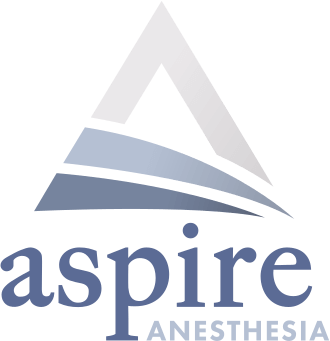
Common Questions
A Dentist Anesthesiologist is an individual who first completes four years of dental school training followed by the successful completion of an accredited post-doctoral anesthesiology residency-training program. Post-doctoral anesthesiology programs are three years in duration, while remain in accord with the Commission on Dental Accreditation’s Standards for Dental Anesthesiology Residency Programs, and meets the eligibility requirements for examination by the American Dental Board of Anesthesiology.
A mobile dentist anesthesiologist will bring all the necessary equipment to provide anesthesia safely in your dentists private office. Monitoring equipment mirrors that used within a hospital’s operating room. The dentist anesthesiologist is responsible for providing a preoperative evaluation, intraoperative management and postoperative care for the safe and effective treatment of the patient. Certified dentist anesthesiologists are also fully equipped and trained to handle full-codes, including all advanced cardiac life support (ACLS) and pediatric advanced life support (PALS) protocols.
Anesthesia is important because it eliminates pain and anxiety during your procedure. It allows your dentist more time to perform complicated procedures, and it reduces physical shock and emotional stress.
Every benefit plan is different— there may be no coverage, partial or complete coverage. It all depends on your plan. Some plans require a tooth to be removed before anesthesia is covered. There are many variations in plans, so it is your responsibility to research your insurance details.
It is important for you to contact your insurance company to determine: Yearly maximums and Coverage for deep sedation/general anesthesia. Privacy legislation does not allow us to directly contact your insurance company.
Each patient will receive a detailed evaluation to assess and establish which technique(s) will be best for a given situation. After discussing your particular desires and needs, our dentist anesthesiologist will then contact your dentist to discuss your treatment needs. Next, a comprehensive review of your medical history will take place. This may include one or more consultations with any physicians or specialists that are overseeing your medical care. Once the anesthesiologist has collected this data, she will discuss what safe and effective options are best based on your medical background, as well as your individualized needs and desires.
During all anesthetic procedures, our doctor utilizes only state-of-the-art, hospital-grade monitoring equipment including EKG, pulse oximetry, capnography, anesthetic gas analysis, Bluetooth pre-tracheal stethoscopes, vein detection scanning, video laryngoscopy and electronic non-invasive blood pressure monitoring. Our dentist anesthesiologist will be in constant attendance from the time you arrive, until you leave following your dental surgery, monitoring your every vital statistic from start to finish. In addition, she is also fully equipped and trained to handle full emergency codes, including all advanced cardiac life support (ACLS) and pediatric advanced life support (PALS) protocols.
Anesthesia and surgical procedures affect the entire body and it is very important for the anesthesia care provider to be able to anticipate the affects on you. Issues, such as asthma or the common cold, can sometimes be perceived as minor, can have a large impact on an anesthetic procedure. In turn, your anesthesiologist may require a pre-operative history & current physical (H&P) as well as clearance note from your primary care physician prior to the onset of your dental care.
Anesthesia is administered by a licensed dentist anesthesiologist, who is trained in a formal anesthesia residency program. Having an independent anesthesia provider (a dentist anesthesiologist), separate from the dental provider (general dentist and any dental specialist), has an unsurpassed safety record while providing care in private dental offices. Medications used are all state of the art, considered safe, and used as intended. The anesthesiologist, through her clinical skills and modern electronic equipment, monitors your vitals signs (pulse, breathing, blood pressure, oxygen level, and heart rhythm) and assures they are maintained normally throughout your procedure.
Why is my dentist anesthesiologist requiring me to avoid food and drink prior to the anesthetic proc
Though quite low, aspiration during anesthesia accounts for a varying number of anesthesia-related complications. It remains a serious, but potentially preventable complication. Pre-operative fasting is the mainstay of attempting to minimize the risk of regurgitation and aspiration. Patient failure to comply with these eating instructions often results in delay or cancellation of elective surgical procedures.

Who Is An Ideal Candidate For The Deeper Levels Of Anesthesia?
Not everyone will require being sedated to the level of unconsciousness. Our job as anesthesiologists is to confirm your personal desires, analyze your overall medical condition, review the advantages and disadvantages of each possible option, and establish what method would be safest and most practical for your particular needs. In general, patients who benefit from deeper levels of anesthesia have:
- An extreme dental fear.
- A history of a traumatic dental experience.
- A low pain threshold or difficulty getting a tooth or teeth numb.
- A difficulty having an IV started.
- Severe needle phobias.
- Severe gagging reflexes.
- Extremely sensitive teeth.
- Claustrophobias.
- Complex dental problems requiring extended time commitments.
- A desire to condense multiple appointments into a single visit.
- Healthcare needs requiring unconsciousness to ensure physiologic safety.
- An inability to understand the need for the procedure (ie: children, dementia, autism, Alzheimer’s, Parkinson’s, diminished mental capacity, etc.).
Are there side effects or complications associated with anesthesia?
Having an independent anesthesia provider (a dentist anesthesiologist), separate from the dental provider (general dentist and any dental specialist), has an unsurpassed safety record while providing care in private dental offices. Nevertheless, it is important to understand some of the associated potential complications. Most short-term side effects of anesthesia occur immediately after your operation and don’t last long. Most people won’t experience any long-term effects.
- Nausea and vomiting are among the most common complications. However, their occurrences are still infrequent (in less than 10% of cases). Patients who have previously experienced postoperative nausea and vomiting or are susceptible to motion sickness are potentially at a higher risk of such occurrence.
- Vein irritation at the site of the IV is also very rare, but a potential minor complication.
- Most people wake up 15 to 30 minutes after anesthesia has been stopped. However, because everybody has a different response to medications, a delayed recovery may happen, especially after extended procedures.
- Laryngospasm is a reflex condition in which the vocal cords close in response to a stimulus such as liquid dropping into the back of the throat. This is not a common occurrence. The treatment involves suctioning of the mouth, delivery of oxygen with gentle pressure and, very rarely, the administration of a muscle relaxant.
- Respiratory depression, another side effect of anesthesia, may require some airway positioning and/or ventilatory assistance.
- Allergic reactions are rare, but are typically managed with use of emergency medications to reverse the signs and symptoms of the reaction.
- A patient may urinate during or after an extended procedure. Patient may consider to wear incontinence products, and bring an extra change of clothes.

